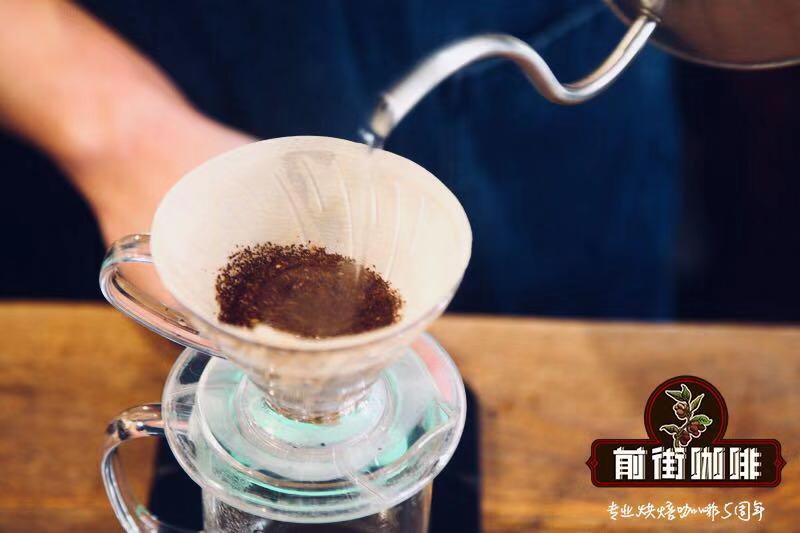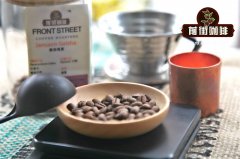Variety characteristics of Iron pickup Coffee Bean characteristics of flavor and taste in Lanshan coffee bean producing area

Professional coffee knowledge exchange more coffee bean information please follow the coffee workshop (Wechat official account cafe_style)
Brief introduction of Qianjie Iron pickup and Jamaican Blue Mountain Coffee
The iron card species is one of the oldest Arabica tree species and has derived many other variants. The Ironpika bean is slender, the tree is tall, the fruit is oval, and the branches are slightly inclined. The four iron pickups are slender and open, tilting at an angle of 50 to 70 degrees. The coffee yield of each tree is very low, but the cup test score is very high. Formerly known as Arabica Iron pickup, the Scottish regiment brought the tree to Kenya from Yemen and planted it with bronze leaves. The Hawaiian tin card was introduced from Guatemala and renamed Kona with a brass leaf tip.
Due to geographical reasons, the iron pickups grown on other coffee belts in the world are different, so they have become variants of iron pickups, such as Blue Mountain Coffee, Java Iron pickup, Guatemala Iron pickup, and so on. The leaf tips of all Irontruck species should be dark. Iron pickup is the first coffee variety grown in the new world.
Jamaica is one of the island countries in the Caribbean, and the Blue Mountains is the longest mountain on the island. You can walk along a sightseeing path to the highest peak, and you can see the north and south coast. This is a beautiful place, warm and humid, perfect for growing Arabica coffee beans.
Blue Mountain Coffee, a coffee beauty with all its advantages, is produced in the Blue Mountains of Jamaica, a tropical island in the Caribbean Sea. The Blue Mountains are located in eastern Jamaica, hence the name because the mountain is surrounded by the Caribbean Sea. On clear days, the sun shines directly on the blue sea, and the peaks reflect the bright blue light of the sea.
The highest peak of the Blue Mountains, which is 2256 meters above sea level, is the highest peak in the Caribbean and a famous tourist attraction. It has fertile volcanic soil, fresh air, no pollution, humid climate, foggy and rainy all the year round, which has created the world-famous Jamaican Blue Mountain Coffee.
There is fertile volcanic soil, the temperature difference between day and night is large, the temperature at night is very low, and coffee trees grow slowly and can absorb sufficient nutrients from the soil. Every afternoon, clouds cover the top of the mountain, preventing the coffee trees from being exposed to the sun. Such superior planting conditions can only be said to be a gift from God.
As mentioned earlier, it is not enough to have good planting conditions, but also requires a serious and positive attitude of the local people. The Jamaican government also attaches great importance to the coffee industry.
Jamaica is one of the countries with low coffee production in the world. Compared with Brazil, the world's largest coffee exporter, it produces 30 million bags (60 kg each) of coffee a year, while Blue Mountain coffee produces only about 40, 000 bags a year, taking the luxury route. In addition, the government has set strict and detailed standards for the processing, roasting and packaging of Blue Mountain Coffee, including what organic fertilizers are needed during the growth period. All are harvested manually at harvest time. Jamaica is also the last country to still transport coffee in traditional wooden barrels.
Palate: gentle and smooth.
Acidity: the acidity is soft and energetic.
Bitterness: refreshing on the palate without bitterness.
Bouquet: fragrant herbs and flowers with nutty aromas.
END
Important Notice :
前街咖啡 FrontStreet Coffee has moved to new addredd:
FrontStreet Coffee Address: 315,Donghua East Road,GuangZhou
Tel:020 38364473
- Prev

What are the characteristics of Tika coffee beans? The flavor characteristics of Katim coffee beans
Professional coffee knowledge exchange More coffee bean information Please pay attention to coffee workshop (Weixin Official Accounts cafe_style) Front Street Tin Card Coffee Features, Yunnan Katim Coffee Introduction Typica: Ethiopia's oldest native variety, produced in Ethiopia and the southeast of Sudan, all Arabica are derived from Typica. Elegant flavor, but weak constitution, resistant
- Next

What are the derivatives of iron pickups typica mantelin coffee flavor introduction
Professional coffee knowledge exchange More coffee bean information Please pay attention to coffee workshop (Weixin Official Accounts cafe_style) Front Street Iron Pickup varieties, Tiger Mantenin Coffee Introduction Arabica, in fact Arabica is one of the most important coffee species in the world, Arabica coffee accounts for about 65%-80% of the world's coffee beans, in a sense, many coffee beans are Arabica
Related
- Beginners will see the "Coffee pull flower" guide!
- What is the difference between ice blog purified milk and ordinary milk coffee?
- Why is the Philippines the largest producer of crops in Liberia?
- For coffee extraction, should the fine powder be retained?
- How does extracted espresso fill pressed powder? How much strength does it take to press the powder?
- How to make jasmine cold extract coffee? Is the jasmine + latte good?
- Will this little toy really make the coffee taste better? How does Lily Drip affect coffee extraction?
- Will the action of slapping the filter cup also affect coffee extraction?
- What's the difference between powder-to-water ratio and powder-to-liquid ratio?
- What is the Ethiopian local species? What does it have to do with Heirloom native species?

